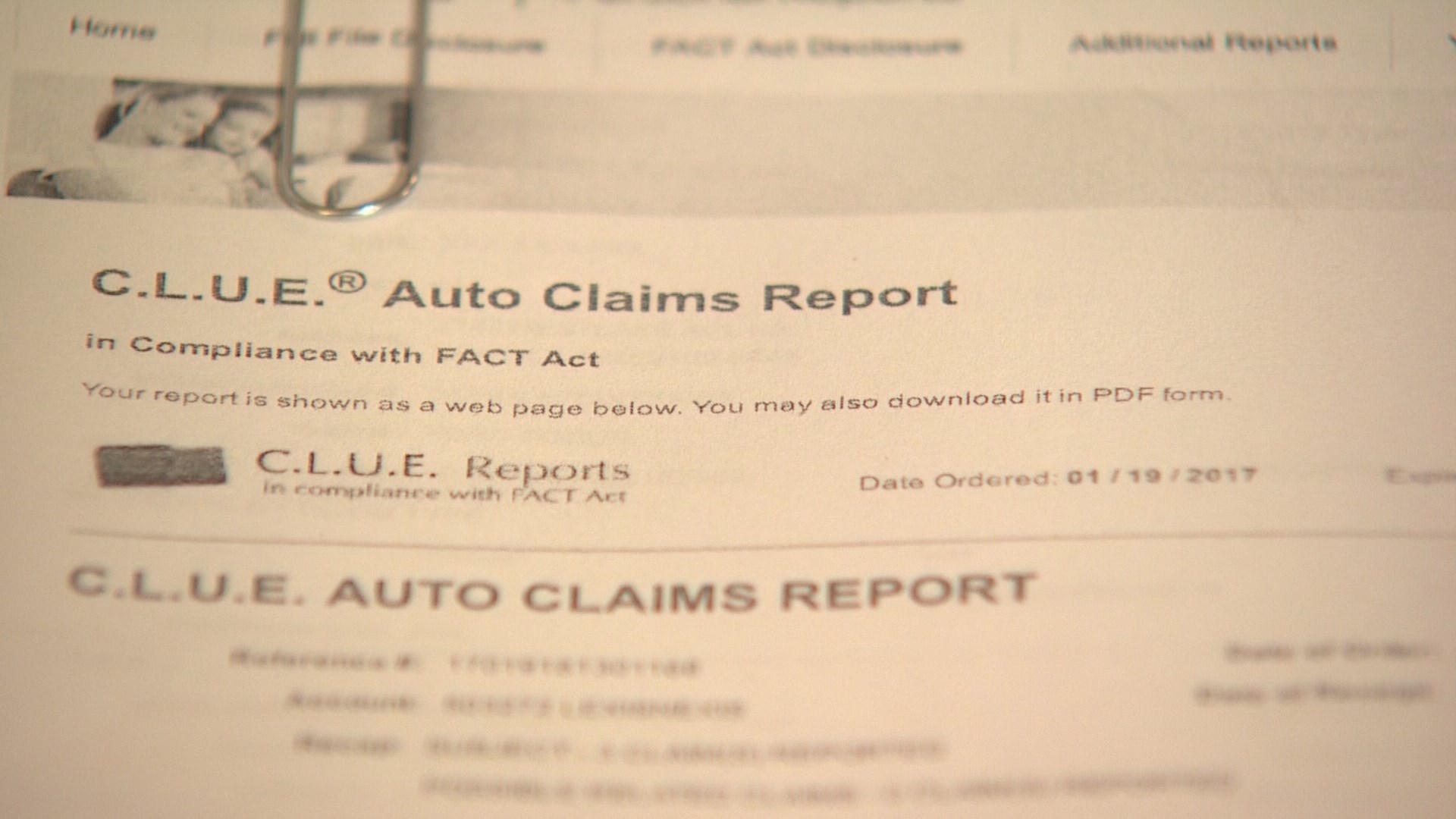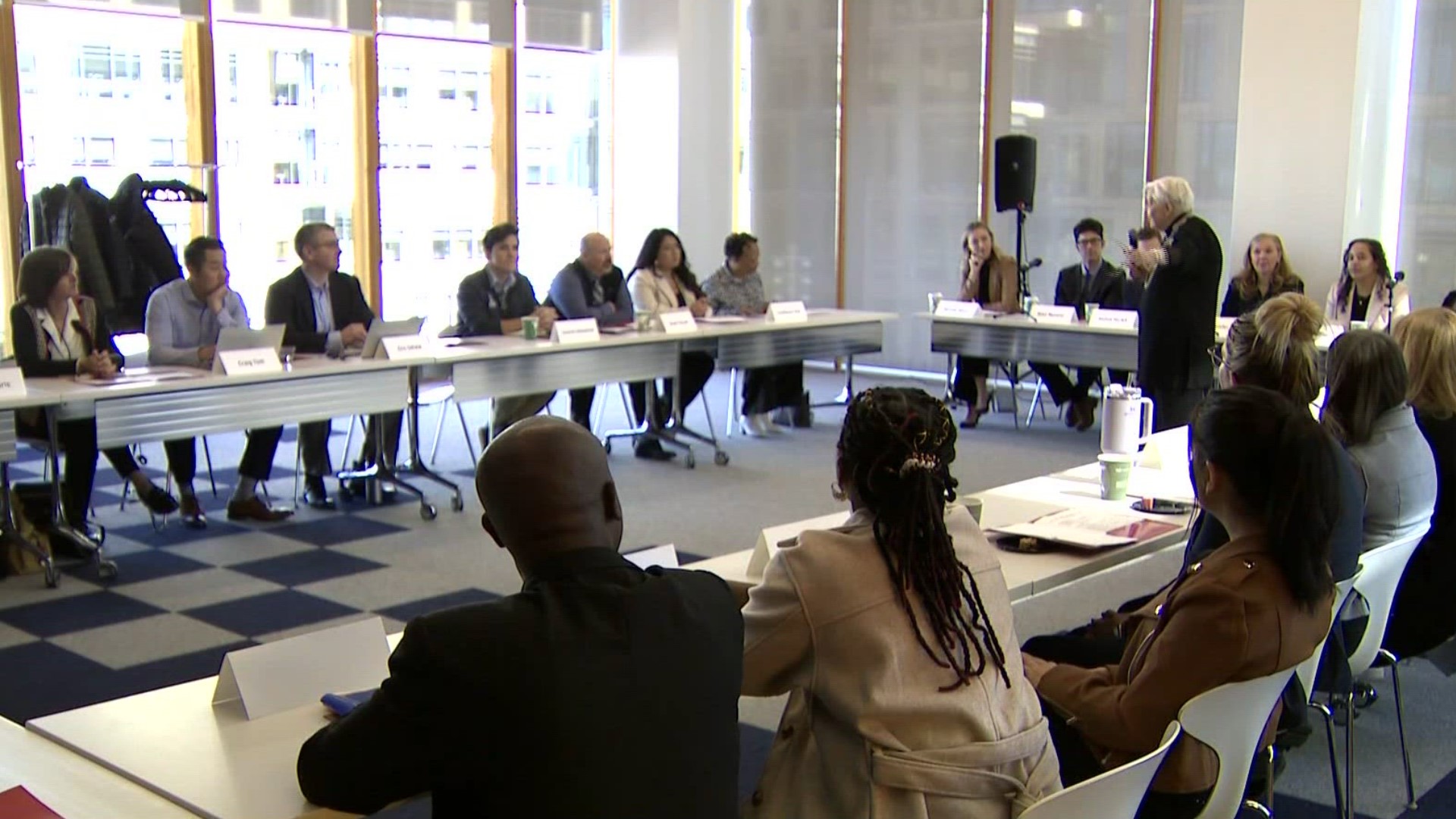Most Americans have never heard about a private database, shared by insurance companies, which helps determine each customer's monthly rate.
The database is called C.L.U.E., also known as the Comprehensive Loss Underwriting Exchange.
A C.L.U.E. report tracks any time an individual has experienced a property loss involving their car or home, for instance, a car accident.
The report is a lot like a credit report, but instead of affecting an individual's credit score, C.L.U.E. takes aim at insurance rates. The more in a report, the more likely an insurance company will jack up its rates or deny a policy altogether.
Mike Schultz experienced that sticker shock after his insurance company recorded him as the at-fault driver in a vehicle accident he called to report as a witness.
"My renewal came up with Farmers, and the renewal rate doubled," Schultz said.
It wasn't just Farmers giving Schultz a hard time. He couldn't find a low rate anywhere.
"Anybody would want to find out why," Schultz said. "And, so that is what I did."
That's how Schultz learned about C.L.U.E.
The database is maintained by the data company, LexisNexis.
Much like creditors rely on reports from companies like Equifax, Experian, and TransUnion, insurance companies rely on the C.L.U.E. report from LexisNexis to set insurance rates.
However, while most Americans know to check their credit, few know about C.L.U.E.
A recent InsuranceQuotes.com survey found 86 percent of Americans had never heard of C.L.U.E., had never checked their report for mistakes, and therefore had known idea if they were paying more for insurance than they should.
"There are two problems," Schultz said. "One is the lack of disclosure for the consumer about what your rate is based on and the other is the obstacle for remedy."
It took Farmers months and a complaint to the Washington Insurance Commissioner's office to correct the problem.
"It should not be that difficult," Schultz said.
Schultz is not the only person who has run into trouble with this report.
KING 5 found 29 other instances in the past five years where people wrote the Washington Insurance Commissioner for help.
One complained he was blamed for "an accident that my brother had." Another protested she had "a 30-year clear driving record."
"The idea that the folks who manage the database would have incorrect information is surprising," said Kenton Brine, president of the NW Insurance Council, the industry's trade association.
Brine called the findings concerning.
"We are always trying to tie rate to risk," Brine said. "It's concerning, because we want accurate information to underwrite policies."
Brine admitted the industry could do better informing consumers about how rates are determined and their rights to obtain a copy of their C.L.U.E. report for free each year.
"It's not something you hear about until you run into it and at the same time were not hiding it," Brine said.
Washington Insurance Commissioner Mike Kreidler agreed more could be done to educate consumers.
KING 5 asked if he would propose new rules requiring insurance companies to inform consumers about C.L.U.E. and their rights to obtain a copy of their report whenever an individual requests an insurance rate.
"I think that is a possibility," Kreidler said. "We certainly would be open to doing some legislation on this issue, that they have to make the consumer aware, that there may be information in the clue report that they may find not accurate."
LexisNexis declined to comment in person, but a spokesperson did provide a statement regarding errors in C.L.U.E. reports.
"We are committed to correcting inaccuracies should they occur," said Regina Haas, LexisNexis media relations director. "We encourage consumers to notify us of inaccuracies in their C.L.U.E.® report so that we can work with the insurance company that provided the information to reinvestigate the information. It is through our partnership with the consumer that we can best ensure that the data we provide is complete and current."
Haas estimated LexisNexis receives five disputes per each 10,000 reports the company receives.
Consumers can check their C.L.U.E. report once a year for free.
Bottom line: consumers can save by making sure a C.L.U.E. report is accurate.
Consumers who have trouble correcting a C.L.U.E. report can file a complaint with the Insurance Commissioner's office.


